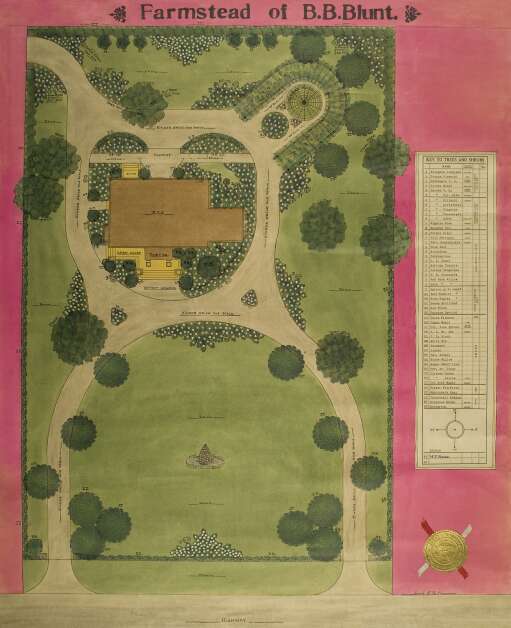The Gazette uses Instaread to provide audio versions of its articles. Some words might not be spoken correctly.
My mother gave a 1915 landscape plan to the Iowa City library of the State Historical Society of Iowa around 40 years ago. My family’s home in rural Charles City was designed by Waterloo architect Howard Burr (1885-1964), and the layout is a rare surviving hand-painted study by landscape architect Joseph Krieger.
Early in the 20th century, the Prairie architectural style gained popularity, and Burr adopted it. Throughout Iowa and the Midwest, his designs can be found in public libraries, churches, schools, and residences.
His documents, which include my mother’s gift, are kept in Iowa City, but their future is unknown because state officials recently decided to close the facility in 2026. According to the society’s administrator, she is forced to close the library due to a $800,000 agency budget deficiency. The disputed sum represents 0.00008% of the state’s total budget.
The library also holds the historical records of my church, which date back more than 160 years to its founding. These documents were presented to SHSI with the idea that the State of Iowa would properly care for these and other collections. Up until recently, the state fulfilled this commitment.
Donors to this long-standing repository are now understandably worried about what will happen to their contributions. As they continue or begin their research, researchers who have utilized or want to use these unique information have been wondering where to turn and why the state made such a poor decision.
Along with other committed employees, historian Mary Bennett, who retired from SHSI in 2023 after a nearly 50-year career, has organized and cataloged vast collections that chronicle Iowa’s rich, controversial, and interesting past.
Her thorough recording of the Meskwaki Nation, Iowa’s sole federally recognized Indian tribe, is one of her notable achievements. Interviews with people who have worked in Iowa’s workforce over the years are collected by the Iowa Labor History Oral Project. Records from corporations, religions, and the civil rights and women’s suffrage groups are also kept at the library. The list continues.
What will become of these collections, then? Only 40% of the Iowa City assets can be accommodated at the Des Moines SHSI facility, according to state officials thus far. They claim that the remainder will probably be scattered in different places, possibly being thrown away, moved to different locations, or given back to contributors.
Anyone interested in Iowa and Midwest history should be alarmed by this reckless and unethical decision. There could be severe consequences.
For instance, conservation care must be taken both before and during travel of the delicate, century-old hand-painted landscape design. If not handled carefully, thousands more individual documents and collections that deserve this kind of attention could be harmed. It’s unclear if any plans have been put in place to properly get these materials ready for transport.
During the anticipated protracted and difficult transfer process, access to these holdings will be restricted. In order to redirect researchers to their new locations, it would be ideal if there were at least a paper or digital trail recording these transfers. However, the people who made this choice have not yet promised such responsibility.
The collections that are not intended for Des Moines may not be able to be absorbed by other repositories in Iowa or elsewhere. For instance, county historical societies, which rely primarily on committed volunteers, might not be able to accept and manage these holdings effectively.
Additionally, the choice erodes trust. Donors to SHSI’s Iowa City library probably feel deceived by state representatives. These people and potential contributors are probably not going to be inclined to donate to the society in the future because of the impending closure. Over time, goodwill between the donor and the repository is built, but it can be destroyed if that trust is betrayed.
The seriousness of the donation of historical materials was described by David Mearns (1899-1981), a Lincoln scholar and lifelong curator of manuscripts at the Library of Congress. He defined it as an act of faith, trust, and good judgment on the part of both the receiving institution, which is in charge of upholding the stewardship covenant, and the donor, who entrusts their priceless documents to a repository for preservation and public use.
It would be wise for those who decided to close the SHSI Iowa City library to take Mr. Mearns’ advice. There’s no doubt that the state can find a 0.00008% answer.
David McCartney is an archivist emeritus from the University of Iowa.






